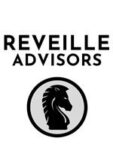Small businesses today are facing all kinds of issues from inflation and regulations to finding qualified labor and more. So, we reached out to the insightful CarolRoth.com contributor network of business owners, experts, advisors and entrepreneurs to share what they think is the biggest issue facing small businesses today. Their responses are presented below, in no particular order.
You may notice some similar ideas listed below, but I kept them separate, as something in the way one is framed may resonate differently with you.

1. Regulatory Compliance
A pressing concern for small businesses is the burden of regulatory compliance. Navigating complex and ever-changing regulations can be daunting for small business owners who may not have the resources or expertise to ensure full compliance. This issue can result in costly fines and legal fees, diverting valuable resources away from business growth and innovation. It also creates a barrier to entry for aspiring entrepreneurs who are deterred by the complexities of regulatory requirements.

2. Help Wanted
The biggest issue facing small businesses today is finding, hiring, and retaining the right employees. We often are working with small budgets, and it's hard to be competitive with bigger companies, especially as wages are going up. It's also difficult as a scaling business to hire quality, part-time help for when business is too much to handle as a solopreneur, but not big enough or consistent enough to be able to pay someone full-time.

3. Squeezed In On Both Ends
As legal counsel to small businesses, I see clients being squeezed in on both ends by escalating prices. Inflation has affected everyone. Vendors are increasing the cost of inputs while customers are being price sensitive to an increase in retail pricing, which leads to reduced demand. Fixed costs -- office rent, utilities, technology, services, subscriptions -- are the same regardless of how many customers they serve. Costs have been escalating while customer demand has been slowing down.

4. Data Security
Data security is a pressing issue for small businesses, as they often lack the resources to implement robust cybersecurity measures. A data breach can lead to financial losses, reputational damage, and legal liabilities, posing a significant threat to the business and its stakeholders. Implementing strong data security protocols, including encryption and regular employee training, is crucial to protecting sensitive information and maintaining trust with customers.
Thanks to: Cesar Cobo of
Webris.

5. Creating A Community
As a small business owner, our biggest issue is simply getting seen by our ideal customers. Social media algorithms seem to favor established brands and large companies, making it tough to build a following organically. It's a constant battle to get our products in front of the right people. Without consistent engagement, it's nearly impossible to create a community of people who truly care about what we offer and the values behind our brand. We put our heart and soul into our creations!

6. Knowledge Theft
Small business owners set themselves apart from online competitors through their expertise and deep knowledge in their field. Many (myself included) make a living online as subject matter experts. LLM like ChatGPT take that knowledge without credit or compensation to the people behind it. In the end, if there are no SME in niches anymore because people turn to AI for answers, who will feed the AI platforms the expertise in the future?

7. Digital Transformation Tips
The biggest issue facing small businesses today is adapting to the digital transformation. As consumer behaviors shift towards online platforms, small businesses must navigate the complexities of establishing a robust digital presence. This challenge impacts my business, FemFounder, as we continually adapt our digital marketing strategies to stay relevant and competitive. Rapid technological advancements and changing consumer preferences require significant time, resources, and expertise.

8. Naivete Towards Competitors
We work with various clients, and many face increased threats from their competitors. Many know their competitors, but they don't understand the depth some will go to win. We've seen over the last two to three years that there's been a rise in more malicious actions taken by competition. Whether it's trying to destroy their reputation through negative reviews and SEO or do real-world damage through fraudulent efforts or disruption. We encourage businesses of all sizes to stay vigilant.

9. Cybersecurity Threats
Cybersecurity threats pose significant challenges for small businesses today due to their increasing reliance on digital technology and online platforms. While large corporations often have dedicated IT departments and substantial resources to invest in cybersecurity measures, small businesses may not have the same level of expertise or financial resources, making them more vulnerable to cyberattacks. Employee education, regular risk assessments and backing up data regularly can be easy solutions.

10. Marketing and Branding!
Building a strong brand and effective marketing strategy on a limited budget can be a significant challenge. Small businesses often need to be creative and resourceful in their marketing efforts to reach their target audience and compete with larger competitors. By focusing on building a strong brand identity, leveraging cost-effective digital marketing channels, and creating engaging content that resonates with their target audience, they can overcome budget constraints and minimal resources.

11. Differentiation & Awareness
With limited marketing budgets, small businesses find it challenging to build brand awareness and reach consumers effectively. Small businesses can differentiate themselves by focusing on their unique value proposition, emphasizing personalized customer experiences, and leveraging local connections to build community trust. Also investing in targeted and creative marketing strategies, such as social media engagement and content marketing, can help them stand out without requiring a large budget.

12. Past Due
The biggest issue facing small businesses today is the stealing of services in the form of an unpaid invoice. Small business owners utilizing contracts for service provision outline payment structures, payment plans, and consequences for nonpayment. Client nonpayment is negligent, unethical, frustrating beyond measure, and oftentimes cost-prohibitive to take legal action. This leaves the service provider in arrears if the collections process is not fruitful.

13. Finding Balance
Finding balance is a challenge for small businesses as owners often juggle multiple roles, leading to burnout and neglect of personal life. To overcome this, delegating tasks, setting boundaries, and prioritizing time management can help small business owners maintain a healthy work-life balance. Doing so also encourages team members to focus on self-care and make it a priority, which helps to create a more well-rounded environment and healthy company culture.

14. Juggling Time Management
Time management is a challenge for small businesses today due to the need to handle various tasks simultaneously, from operations to marketing. Unexpected interruptions, urgent issues, and changing priorities also make it difficult to stay organized and productive. It's helpful to implement effective time management techniques such as prioritizing tasks, setting realistic deadlines, and using productivity tools, as they can help small businesses streamline operations and focus on key priorities.

15. SMBs Need to Focus
A key challenge is about the importance of focus. There's so much noise out there with social media/nonstop news/climate change/gun violence/political unrest that for my clients and me, staying focused with all the distractions we are bombarded with on a daily basis can be tough. “Me time” isn't a luxury or pampering like it was in my youth, now it is maintenance! Give yourself permission to say no. To improve productivity in my experience, when you focus and do less you can get more done.

16. Changes to Accreditation
For businesses like ours that offer training, accreditation is often important. During the pandemic, many of the requirements around educational training shifted, particularly regarding any in-person components or hours. Even years down the line, it can be unclear whether exceptions made during the pandemic that have persisted will become permanent or ever be repealed. Staying involved with your industry and its accreditation bodies can help keep your finger on the pulse of these changes.

17. Know Your Business
One of the biggest issues small businesses face today is being knowledgeable of the business of the business. Normally there's a solid understanding of the product/service side, however when it comes to the business side of things, there's a complete lack of understanding. As for the business side, I'm referring to the Accounting/Bookkeeping, Branding, Advertising/Marketing, Leveraging Technology, etc. It's very important to have an understanding of these areas to maintain a successful business.

18. Local Government Indifference
Appeals to local offices for things like bike lanes which have hampered sales by as much as 40% or misdemeanor crimes which are met with shrugs or lack of enforcement make operating a retail store even harder.

19. Going that Extra Mile
One of the biggest issues facing Porchlight since COVID hit is finding employees who want to really go above and beyond in their work. They’ll put in their 35–40 hours per week but say, “I can’t get to the rest this week, let’s push it to next week.” Almost like they’re setting parameters for when they’ll work, and what they won’t do. That seems a little inverse to what it should be. Sometimes, that little extra effort (and hours) are needed to get over the hump.

20. Cheese Wars & Copycats
A big issue facing the small businesses I work with as an IP attorney is the uptick of unwanted copycat competitors! For example, a business recently started "Squeaky Cheese Inc." and a copycat popped up shortly after for "Squeaky Cheeze LLC." The client wants to keep the cheese original and is facing a copycat as many other small businesses do.

21. Biggest Business Challenge
The biggest issue facing small businesses today is the struggle to compete with larger corporations. Limited resources, lack of brand recognition, and difficulty accessing capital hinder their growth potential. This impacts small businesses by limiting their customer reach and making it challenging for them to establish a significant market presence.

22. Retaining Skilled Workers
For a small plumbing business like ours, we understand the importance of finding & retaining skilled workers, especially in a tight labor market. Skilled plumbers are in high demand, and the competition for them can be fierce. To address this, we've focused on creating a supportive work environment that values everyone's contributions. We offer competitive wages and benefits, and we make an effort to provide ongoing training and certification opportunities.

23. Cybersecurity Threats
Technology is essential for driving business operations and reaching new markets. However, small businesses face significant challenges in safeguarding digital assets against cyber threats. These threats not only pose a risk to sensitive data but can also result in substantial financial losses and damage to the business's reputation. To combat this, we prioritize cybersecurity within our budget. We also invest in employee training to recognize phishing attempts and other common cyber threats.

24. The Many Hats Of Marketing
New social platforms seem to be sprouting up faster than we can count. Each platform adds another hat to our team, needing stylized content and media to be and remain relevant. Keeping abreast of new avenues, assessing them, and predicting their relevance to our business is a large task in itself. The many hats our digital marketing team wears grows month by month.

25. Accessibility = Growth
As small business owners, a big issue we face is seeking competitive advantages. So, imagine reaching a huge community of highly loyal consumers who will advocate for your business? Now, add to that the extended purchasing power of their friends, families, coworkers, and social networks. Then, consider that disabled people are generally creative, positive, dedicated, loyal employees. And then ask yourself if it would be worth a small effort to take advantage of this opportunity? Can you afford to ignore them?

26. Breaking Through the Noise
It seems that each year, there is more and more noise, whether it's entertainment or politics. It gets harder each year for small businesses on small budgets to break through and get seen or heard by potential customers. In this Presidential year, with wars breaking out overseas and trials breaking out in the US, there is probably less room than ever before for people to notice a small business.

27. Taxes Take-Down!
Everyone should pay their fair share of taxes. But there is a level of bureaucracy that is killing small businesses. Just an amazing amount of expenses and requirements to do business in many states and it is a barrier for many businesses who are struggling to stay afloat. We have been fortunate, due to the success of our line, but that does not mean we like all the extra time and expense to deal with all this. Very sad seeing our fellow biz friends struggling... hopefully better days ahead!

28. Pressure to Chase Novelty
In a world where startups seem to pop up overnight and disrupt entire industries, small business owners can feel immense pressure to innovate constantly, fearing that if they don't, they'll fall behind their competitors. This mindset leads to entrepreneurs prioritizing novelty over practicality, chasing after flashy ideas without fully considering their viability or market demand. It only ends in wasted resources, missed opportunities, and ultimately, failure to establish a strong foundation.

29. The Need for Skilled Drivers
For our truck driving school, the link between the supply chain and the availability of skilled drivers is clear. Global supply chain disruptions have underscored the critical role that truck drivers play in maintaining the flow. These disruptions can lead to delays and increased costs, affecting businesses and consumers. Recognizing this, we focus on training drivers who are skilled in safe driving practices and in logistics and time management to navigate these challenges effectively.

30. Soaring Pricing Has a Cost
We create video books, relying on acquisition of parts: highly technical, attractive packaging and shipping boxes, labels, tape. Any rise in cost effects our balance sheet. We must hold to advertised pricing, thus the challenge is revealed. Our clever team have taken many preventive steps, including increasing inventory and limiting product offerings. Switching to seemingly lower cost substitutes have literally "paid the price" when customers report malfunctions and we issue replacements.

31. Managing Rising Food Costs
We are directly impacted by fluctuations in food prices, which can be unpredictable and vary significantly. These rising costs challenge our ability to maintain menu prices while ensuring the quality of dishes we are known for. To manage this, we actively build relationships with local suppliers, which often gives us access to fresher ingredients at more stable prices. We also regularly review and adjust our menu offerings based on the seasonality of ingredients to optimize costs.

32. Talent Acquisition
In the initial stages of launching a small business, affording top-tier talent right out of the gate is a huge challenge. Funds are tight, every penny counts. But even when the finances start to stabilize and you can finally entertain the idea of expanding your team, a new challenge emerges — finding the right people with the right skills and attitude. It's a dual struggle; financial constraints and the quest for the perfect team.

33. Economic Uncertainty
The biggest hurdle right now is the economic downturn we’re witnessing. Between the aftermath of the pandemic and the ongoing geo-political conflicts, things have gotten pretty shaky. With central banks tightening their belts to fight inflation, interest rates are creeping up, people are tightening their belts, and that means less cash flow for small businesses. Some are cutting back on staff, watching those profits shrink, and holding off on exciting new projects.

34. Not for the Fainthearted!
When ScrubzBody started I had stars in my eyes, a credit card, and a wish to make people feel good. I knew plenty, but oh, what I didn't know!
As the years have passed, I have learned more about what to do & more importantly, what not to do.
I love it when the systems we have in place work well and days are seamless. But when the proverbial poop hits the fan, having the fortitude to keep pushing through it is what brings success.
Anyone can start a biz, but not everyone can keep it going!

35. GenAI and the SEO Conundrum
Our ability to draw in organic traffic makes or breaks our ability to earn money, and we’re seeing AI-generated content cropping up everywhere. Even Google is adopting AI in its search experience. As GenAI floods the market, Google is updating algorithms to prioritize people with real subject matter expertise. We’re working on finding ways to use AI in supportive roles to scale mindfully without losing what makes SEO-driven content valuable - writing something people actually want to read.

36. Worker Shortages Continue
With the Census Bureau projecting its slowest growth in the working population since the Civil War, hiring and retention issues continue to be top of mind for us. We need to find ways to stand out as better employers, offer more flexibility, and build a team culture that draws people in and supports their success. At the same time, we’re finding ways to leverage GenAI and other technologies to improve the employee experience and automate to make us less reliant on our team.
Thanks to: David Ciccarelli of
Lake.

37. Being Visible!
Standing out as a small business today is tough. With big brands saturating the market, it's easy to get lost. But here's the thing: authenticity is your secret weapon as people crave genuine connections. Show your unique story, values, and personality, engage with your community online and offline, offer great customer service and collaborate with local influencers or partner with complementary businesses. By being true to who you are and consistently delivering value, you will stand out!

38. Inflation & Interest Rates
In the current landscape, small businesses are grappling with the twin challenges of escalating inflation and rising interest rates. These economic factors impact pricing and financing. The uptick in interest rates adds another layer of complexity in securing loans and financing their operations. Communication with customers about price changes is key, alongside strategic financial planning and transparent operations. Adaptation and resilience ensure continued value and service excellence.
Thanks to: Scott Levene of
Levco.

39. Retaining Loyal Employees
One issue is finding and keeping reliable employees who buy into the goals and vision of the company. If employees come and go, business owners are preoccupied with hiring and training, which is akin to being stationary and not progressing. Retaining loyal employees fosters a sense of stability within the organization, allowing for smoother operations and cultivating a cohesive company culture. When employees are aligned with the company's mission, they become invested in its success and growth.

40. The Make-or-break X-factor
Many entrepreneurs struggle with getting the word out about their business. So many things can distract potential customers from your brand. You can offer great services and have a diligent team, but if you don’t promote your organization consistently, new customer acquisition can feel like a struggle. This development impacts an organization’s financial strength. A business’ marketing strategy, or lack thereof, is often a make-or-break factor when it comes to the organization’s success.

41. Digital Marketing Overload
In the fast-paced digital landscape, small businesses often grapple with the overwhelming complexity of digital marketing. This challenge arises from the multitude of platforms, tactics, and strategies available. It makes it difficult for small business owners to navigate and execute effective marketing campaigns. Small businesses should invest their marketing budgets wisely, prioritizing high-impact strategies. They should narrow their focus onto tactics that offer the best return on investment.

42. Maintaining Strong Online PR
Small businesses struggle to stand out online due to limited resources for advertising and digital marketing. Competing with larger corporations, they face difficulties attracting customers and keeping up with technology. Understanding and implementing effective digital strategies poses additional challenges. Overcoming these hurdles is crucial for their long-term success in today's competitive market. Adapt to the evolving digital landscape and seek out cost-effective marketing solutions.

43. The Great Resignation
In today's dynamic economy, attracting and retaining top talent is the biggest hurdle most small businesses face. The 'Great Resignation' has created a competitive job market, and small businesses often lack the resources of larger corporations. However, by focusing on company culture, professional development opportunities, and competitive compensation, small businesses can stand out. I recently advised a client to implement flexible work arrangements and mentorship programs.

44. Customer Loyalty and Retention
In the realm of online business, gaining new customers is only half the battle—retaining them can be even more challenging. The internet provides consumers with endless choices, making loyalty hard to sustain. Online businesses must continually engage their customer base, deliver exceptional value, and effectively utilize digital marketing strategies to keep their brand at the forefront of consumer minds.

45. Utilizing AI & New Technology
In my opinion, businesses are not fully utilizing technology and AI to level the playing field. I think most small law firms view technology and AI as a burden rather than an opportunity. The pace of change in all industries is accelerating due to technology and, as a result, accepting the status quo is far more dangerous today. At our firm, we emphasize the use of technology on non-client matters, and then depending on the success, use that technology expertise to benefit our clients.

46. Fierce Competition
Small businesses face tremendous competition from huge enterprises and may not survive. When I first started, I chose a product that other big companies were selling because it was a running item. I sold the same quality item at the same price. But when giant companies realized this, their new competitor entered the market. They enticed customers by slashing prices so low that they didn't cover costs. It is a big problem for small companies, but they have no option but to be patient.

47. Proper Cybersecurity
One of the biggest issues facing small businesses today is cybersecurity. Specifically, the lack of online protection and knowledge in order to keep your company (plus clients & employees) safe over an extended period of time.
With cyber threats on the rise, most businesses lack proper defenses. As a cloud storage provider, safeguarding data is crucial and something we understand. Without adequate protection, businesses face potential breaches, risking sensitive information and reputation.
Thanks to: Handy Barot of
StorX.

48. Local Marketing
One major challenge for small businesses today, specifically those location-based businesses like my plastic surgery office, lies in effective local marketing. Reaching and engaging local clientele is vital, yet it's complicated these days. Local marketing demands tailored strategies to resonate with community needs while navigating modern marketing tactics, which are designed to reach wider audiences. Establishing and executing on a local marketing strategy is vital, yet challenging.

49. E-commerce Growth
For ecommerce businesses, It’s a challenge to perfect the entire purchasing journey to ensure it is as effective and efficient as possible. From capturing online attention to nurturing leads through personalized communications, every step of the customer journey must be carefully planned to maximize conversions and foster long-term loyalty. Striking the right balance between engaging content and seamless checkout processes is essential in overcoming the challenges in today's ecommerce world.

50. Trust the Process
The biggest problem for new business owners is looking for overnight success. But starting a business and making it successful is a process that takes time. There is no secret sauce. It takes hard work and consistent discipline in your processes to get you to the next level. Too often, I talk with business owners who believe there is a magic sauce to their business’ success (“If I just had ...”). There is not. It takes hard work. Things work out for those who work at it.

51. Automation Tech Stack Choice
Choosing the appropriate tech stack for marketing and sales automation can be daunting for small businesses. They often face budget limitations, requiring cost-effective solutions that deliver value. Scalability is critical; tools should accommodate growth without hefty upgrade expenses. Integration with existing systems is essential for streamlined workflows. User-friendly interfaces are necessary for teams with varying technical skills.

52. Employee Upskilling
One big issue facing most businesses today (big and small) is ongoing employee upskilling.
It's challenging to keep pace with rapid changes in technology and industry trends. Investing in continuous training programs is crucial, but it requires time, resources, and commitment. It also requires the expertise to do it correctly, which many people don't have.
Without upskilling, businesses risk falling behind competitors and losing relevance in the market.
Thanks to: Bradford R. Glaser of
HRDQ.

53. Fierce (Larger) Competition
The biggest issue facing small businesses today is fierce competition.
With larger corporations dominating markets and online platforms, it's tough to stand out and attract customers as a small, local market.
Finding unique selling points and effective marketing strategies is essential but often daunting for smaller enterprises.

54. Don't Be Afraid to Innovate
Fear of forging a new and untried path stifles the potential of small businesses. As small business owners, we’re working with limited resources and so it makes sense that many of us want to stick to tried and tested business models. However, many markets are saturated–meaning they’re not necessarily sure bets when it comes to making consistent income. Meanwhile, many new or emerging markets brimming with potential are out there ready to build a successful business around.

55. Sustainable Practices
One issue confronting businesses today is the need to embrace eco-friendliness and sustainability.
As leaders in this industry, I know that the demand for environmentally conscious practices is reshaping the business landscape. Companies are grappling with the need to adopt renewable energy solutions and implement sustainable practices in their operation. This transition is not only a moral imperative but also a strategic necessity as consumers increasingly prioritize eco-friendly brands.

56. Maintaining Cash Flow
I've seen firsthand how cash flow management can make or break a small enterprise. Even thriving businesses struggle when payments are delayed or expenses spike unexpectedly. This relentless juggling act strains owners mentally and financially.
Poor cash flow hinders growth, prevents hiring top talent, delays adopting new technologies, and jeopardizes vendor relationships.

57. Lack of Access to Capital
Many entrepreneurs struggle to secure loans, investments or lines of credit due to factors like lack of collateral, limited credit history or bias in the financing system. This cash crunch makes it extremely difficult to invest in talent, technology, marketing and other essentials. Without adequate capital, great business ideas with amazing potential often never get off the ground or stagnate and fail before they can thrive. Solving the financing roadblocks could unleash a wave of innovation.

58. Attracting & Retaining Talent
This issue significantly impacts small businesses' ability to innovate, grow, and provide excellent customer service.
Skilled workers are often drawn to larger companies that can offer higher salaries, better benefits, and more opportunities for advancement. Small businesses must get creative with their compensation packages, company culture, and work-life balance offerings to compete. Failure to address this issue can lead to high turnover and decreased productivity.

59. People, People, People
When leaders understand how to identify what they need, attract the ideal person, and effectively communicate with them to keep them happily engaged, 90% of your business challenges simply go away. There is nothing more important than solving your ‘people’ issues - nothing.

60. Navigating Hard Conversations
Navigating hard conversations, conflict & feedback is an essential skill for business & team success. Good employees & profit are lost when these conversations are not handled well. Businesses who have policies/procedures, & training to help employees & leaders have those courageous dialogues (conversations that matter most and are mostly avoided) are more likely to create healthy, respectful and safe cultures. A culture where people look forward to Mondays instead of dreading Monday.

61. Working in Your Business
For most small business owners, working in their business instead of on their business continues to be a major pain point. Business owners need to delegate the tasks they can – like marketing, accounting, calendar management and facility management. Yes, it will cost money to hand them off to an employee or an external firm, but you will save in the long run. These professionals can do the work more quickly and effectively, which will allow you to focus on necessary strategic planning.

62. Customer Acquisition
In a crowded business world, distinguishing your brand amidst the noise of advertising is a very challenging.
Crafting a unique value proposition and deploying creative marketing strategies are essential. From social media engagement to targeted campaigns and ads, every effort must resonate with your audience to cut through the noise and capture their attention, fostering lasting connections and driving growth.

63. Insufficient Working Capital
The biggest challenge I perceive that small businesses often grapple with is the lack of access to sufficient working capital. This dearth of funding not only restricts the smooth operation of the businesses due to cash flow issues but it also hinders their plans for growth and expansion. These mounting financial pressures can result in companies operating at less than optimum capacity or worse still, it could lead them to shut shop altogether.

64. Digital Literacy
I believe digital literacy is the most pressing issue currently facing small businesses. The rapid pace at which technology evolves often leaves small businesses behind, unable to fully adapt or exploit the advantages of digital tools and platforms. This gap in tech-savviness hampers efficient operations and effective marketing, consequently stunting growth. From my experience in running Southwestern Rugs Depot, mastering the digital landscape has been crucial in staying competitive.

65. Digital Transformation
One prominent issue faced by small businesses today is navigating digital transformation and maintaining a robust online presence. For my business, Formen Makeup, it has become increasingly vital to engage customers online and optimize our digital marketing strategies. This pushes us to constantly stay on top of shifting consumer behaviors and emerging technologies, which can be a significant challenge given the limited resources and expertise of a small-scale organization.

66. Affordable Legal Services
The lack of access to affordable legal services can pose a significant challenge for small businesses, particularly when it comes to navigating complex contracts, disputes, and regulatory requirements. Legal fees can quickly add up, putting strain on small business budgets and limiting their ability to seek legal recourse when needed. This issue highlights the importance of legal aid programs and affordable legal services tailored to the needs of small businesses.

67. Business Competition
Small businesses often struggle to compete with larger corporations that have greater resources and economies of scale. This issue can manifest in various ways, from pricing pressure and aggressive marketing tactics to monopolistic practices that squeeze out smaller competitors. This unequal playing field can stifle innovation and limit consumer choice, ultimately harming both small businesses and the communities they serve.

68. Access to Skilled Labor
Limited access to skilled labor is a major challenge for small businesses, especially in industries experiencing talent shortages or specialized skill requirements. Competition with larger corporations for top talent further exacerbates this issue, making it difficult for small businesses to attract and retain qualified employees. This issue hampers small businesses' ability to innovate, expand, and deliver high-quality products and services to customers.

69. Supply Chain Disruptions
Supply chain disruptions pose a significant threat to small businesses, particularly in the wake of global events such as natural disasters or geopolitical conflicts. Interruptions in the flow of goods and services can lead to inventory shortages, production delays, and increased operating costs. This issue highlights the vulnerability of small businesses to external shocks and underscores the importance of building resilient supply chains.

70. Cash Flow Management
Inconsistent cash flow management poses a significant challenge for small businesses, leading to financial instability and operational setbacks. Fluctuations in revenue, delayed payments from clients, and unexpected expenses can disrupt business operations and hinder growth initiatives. This issue underscores the importance of implementing effective cash flow forecasting, invoicing practices, and financial planning strategies to mitigate risks and sustain long-term success.

71. IP Theft and Infringement
Intellectual property theft and infringement pose significant risks for small businesses, particularly those with innovative products, designs, or branding. Lack of resources to pursue legal action or protect intellectual property rights can leave small businesses vulnerable to exploitation by larger competitors or counterfeiters. This issue emphasizes the importance of implementing robust IP protection strategies and staying vigilant against infringement to safeguard business assets.

72. Access to Affordable Capital
Access to affordable capital remains a persistent challenge for many small businesses, particularly those in under-served communities. Limited access to loans and other forms of financing can hinder growth opportunities and prevent businesses from expanding operations or investing in new technologies. This issue disproportionately affects minority-owned and women-owned businesses, exacerbating existing disparities in access to economic opportunities.

73. Rising Operational Costs
Rising operational costs, including rent, utilities, and supplies, pose a significant challenge for small businesses, especially in high-cost urban areas. Balancing these expenses while maintaining competitive pricing and profitability margins is a constant struggle for small business owners. This issue impacts small businesses by squeezing profit margins, limiting reinvestment in growth initiatives, and potentially leading to financial instability.

74. Education & Mentorship
Inadequate access to business education and mentorship programs limits the growth and success of small businesses, especially those owned by minorities, women, and underserved communities. Lack of guidance and support in areas such as business planning, marketing, and financial management hampers entrepreneurial development and sustainability. This issue underscores the importance of investing in mentorship initiatives and educational resources to empower small business owners.

75. Keeping Up with Technology
Technological advancements are known for driving business innovation and efficiency. But as a small or mid-sized business, it can be challenging to keep up and have the time and financial resources to constantly invest in the latest tech. However, if you miss the boat on a major advancement, you risk your business falling behind its competitors. That's why we do our research, take advantage of free trials, and share our experience with new tech among the team before going all in.

76. The Differentiation Dilemma
The one biggest issue facing small businesses today is differentiation. Honestly, things like inflation are external to a business's success. If your product or service is compelling enough to a certain group of consumers, it doesn't matter what the economy looks like, it will sell. However, that is easier said than done. While there are theoretically infinite ways to differentiate a product from its competitors, only a handful of those would realistically work in a given time.

77. Dishonesty is a Disease
With the rise of online businesses, the biggest issue start ups and small business owners face is the "make money quick" marketing strategies and, worse, pyramid schemes distributed online. While this phenomena is rooted in false marketing for those who engage in it, it leads to false expectations for those who consume or view it.

78. Build an A-Team, Startup Style
As a small business owner, the biggest challenge is attracting and retaining top talent amidst limited resources. We can't always match corporate salaries, so we must get creative - cultivating a culture of collaboration, innovation, and purpose beyond profits. It's about embracing the grind, thinking outside the box, and building something special that top talent wants to be a part of. With passion and ingenuity, even startups can assemble an A-team.

79. Standing Out From the Crowd
Our biggest challenge is grabbing attention and standing out. With everyone bombarded by brand messages daily, carving out our space and establishing authority is crucial. Especially if selling something's a little commoditized.
If we can't differentiate, we risk fading into obscurity and jeopardizing long-term success.

80. Retaining Top Talents
These economic pressures are making it difficult for small businesses (including mine) to keep their best talent onboard and continue attracting new hires. It’s tough to keep up with employees’ salary expectations and/or demands. Because of this, we need either to rely on solo efforts to streamline operations or seek strategic partnerships to add value propositions. None of these options is easy.

81. Breaking Linguistic Bounds
We value meeting the needs of international travelers, such as invoices and booking details written in a language they understand well. Legal and financial terms may not directly translate between languages and cultures so failure to address this need risks confusion, mistakes, and dissatisfied customers.
Going above and beyond language and currency preferences helps us better serve clients across borders.

82. Quality, Not Quantity
Market competition is a significant challenge for small businesses. Spreading awareness in a crowded market is difficult, so I use networking and referrals to grow organically. This is a slower method, but it allows for genuine connections with clients, rather than focusing on volume. A slower pace allows me to nurture relationships while continuing to build new ones. The way you treat clients speaks volumes about your business, so invest in the person, not the dollar sign. Growth will come.

83. Be Adaptable Online!
We live and die by our web presence, and it's getting harder and harder to navigate that changing landscape. Shifting SEO standards and uncertainty around which social networks to advertise on are especially problematic for our business model.
Thanks to: Nick Valentino of
Bellhop.

84. Recruit and Retain Employees
For a small business owner, managing a small company and ensuring it grows to a larger scale is a challenging task. Despite this, with the appropriate strategy and plan, challenges can be overcome. One of the main issues facing small business owners looking to grow their business is finding and keeping competent and dedicated employees. Also, losing an employee can have a big effect on your company because it will reduce your productivity and minimize the amount of work you produce.

85. Small Busineses Biggest Issues
Small businesses face significant challenges in digital transformation, struggling with limited resources and technical expertise. The rapid evolution of digital tools and the need to compete with larger companies with more resources heighten these difficulties. Establishing a powerful digital presence is crucial for their survival and growth.

86. Ignoring Safety to Save Money
It's easy for small business owners to fixate on profitability at the expense of their employees, customers, and the public. However, safety should always be the number one priority of anyone running a business, not only because it's the right thing to do, but because in the long run safety violations are very costly to any business. These costs include the loss of employee time, the loss of customers, rising insurance costs, and verdicts to justly compensate the victims of such negligence.

87. Rising Costs Vs. Reimbursement
Dental practices face financial challenges as operational costs increase and outpace dental insurance reimbursements. As overhead grows, some dentists leave insurance networks to maintain fair fees, risking patient relations due to unexpected costs and reduced coverage. This creates tensions between the providers and patients. This strain highlights the need to educate patients on the gap between reimbursements and rising costs, emphasizing that quality care remains the priority for dentists.

88. Economic Uncertainty
One of the biggest issues facing small businesses today, in my experience, is the challenge of maintaining cash flow. It's a multifaceted problem that impacts every aspect of running a company like CleanItSupply.com. Cash flow concerns arise from late payments by customers, unexpected expenses, and the need to invest in inventory or marketing without immediate returns. This often forces small businesses to make tough choices about where to allocate limited resources, which can hamper growth.

89. Funding Gap
When we were in the same shoes, we saw how small businesses struggle with access to funding. Traditional financial institutions often view them as risky, hindering their ability to expand, invest in technology, or cover daily expenses. This lack of resources stifles growth and innovation at a crucial time for agility. Such financial constraints can ultimately limit a small business’s potential to compete and thrive in today's economy.

90. Navigating the Supply Chain
As the founder of Or & Zon, the biggest issue I believe small businesses, including ours, face today is navigating the complexities of supply chain management. Global artisanal sourcing presents unique challenges, primarily due to the ever-changing international trade regulations, shipping delays, and unexpected costs that can arise from working with craftspersons across different countries.

91. Economic Fluctuations
If I were to pinpoint the single biggest issue facing small businesses today, I would highlight the challenge of supply chain disruptions. These disruptions have been particularly pronounced in the wake of the COVID-19 pandemic and continue to challenge businesses worldwide. Economic fluctuations make it difficult to plan long-term, invest in new technology, or expand our workforce confidently.

92. Navigating the Tides
I grapple with a multitude of challenges that are indicative of the broader issues facing small businesses today. If I had to pinpoint the single biggest issue, it would be navigating economic uncertainty. The e-commerce landscape is constantly evolving with fluctuating market conditions, shifting consumer preferences, and unpredictable economic policies.

93. Inflation is a PAIN!
The biggest challenge facing MY business today is INFLATION!
The cost of running a business increases every day. Last year, inflation rose 4.1%. We're now spending more money to purchase the raw materials to produce Mr. Moxey’s products. Therefore, we must increase our prices to maintain our profit margins.
Also, inflation has decreased our customers' purchasing power, which means most of them have to spend more to buy from us. This cycle eventually leads to a shrinking market size.

94. Subscription Overload
The biggest issue facing our small, family run business is subscription overload. Running a subscription model does mean repeat revenue, but individuals are getting more and more wary of signing up to subscription based services and we can see this in our exit surveys. From Netflix, Spotify to Apple Fitness the amount of subscription services has sky rocketed over the last 10 years making it very difficult for more independent, small business to compete against the big players.

95. How Precious is Time?
Prioritize strategic planning, and allocate time to optimize resources. Assess your goals, and map out a clear plan of action.
Identifying and optimizing bottlenecks can be a game-changer. Focus your efforts on streamlining these bottlenecks, which can free up valuable time and improve overall efficiency.
Be proactive, while it's important to address immediate concerns, try to allocate time to include market research, product development, or exploring new growth opportunities.































































































